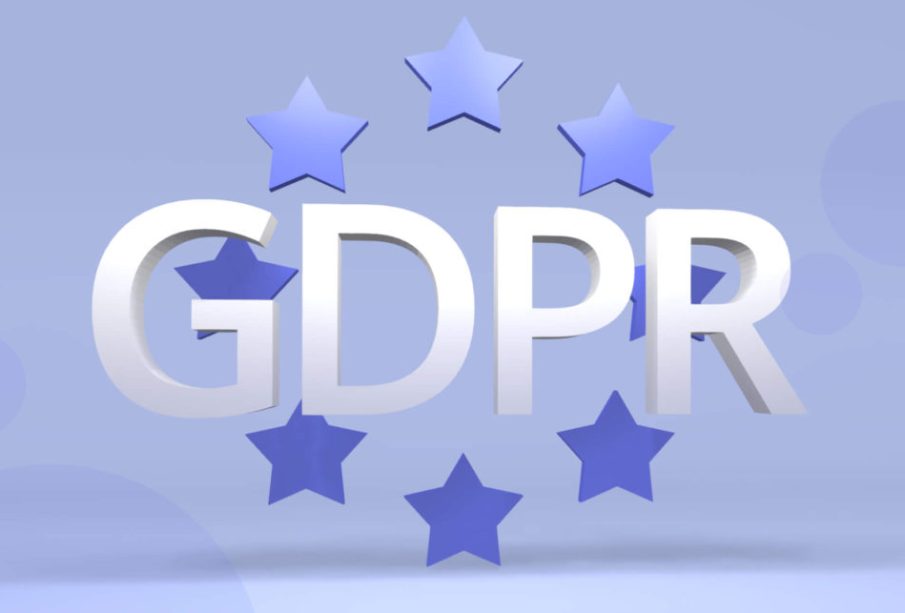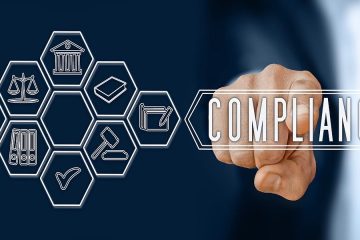Advanced Strategies for GDPR Compliance Used by Top Companies

As global data privacy regulations continue to evolve, the General Data Protection Regulation (GDPR) remains one of the most robust and widely recognized privacy frameworks for businesses worldwide. Enforced in 2018, GDPR has reshaped how organizations collect, store, and process personal data, particularly in the European Union. For companies to maintain GDPR compliance, it’s not enough to simply meet the baseline legal requirements; they must adopt advanced strategies to stay ahead of regulatory changes, protect customer data, and mitigate the risks associated with non-compliance. Leading businesses have recognized this imperative and are employing sophisticated and proactive methods to manage their data privacy obligations. This article explores the advanced strategies for GDPR compliance used by top companies and why these strategies are crucial in today’s data-driven landscape.
1. Privacy by Design and by Default
One of the foundational principles of GDPR is “privacy by design and by default,” a concept that encourages businesses to incorporate privacy measures into every aspect of their operations from the outset. Leading companies are embracing this principle as a cornerstone of their data governance strategies. Privacy by design means that businesses integrate data protection measures into their systems and workflows right from the planning stages. Whether it’s product development, marketing campaigns, or software design, the privacy of personal data should be a central consideration.
For instance, Microsoft has adopted this approach across its product lines, from cloud solutions to operating systems. The company incorporates robust encryption, data minimization, and anonymization techniques into its services, ensuring that personal data is protected from the outset. This not only helps mitigate risks associated with data breaches but also positions the company as a leader in data privacy, instilling confidence among customers and regulatory bodies alike.
Privacy by default, on the other hand, means that businesses should only collect personal data that is absolutely necessary for the intended purpose. For example, companies like Apple are known for their minimalist approach to data collection. Apple’s iOS devices are designed to give users control over their data, allowing them to choose what information is shared and when. By limiting the amount of data collected, these companies reduce the risk of data misuse and make it easier to ensure compliance with GDPR’s strict data handling rules.
2. Automated Data Mapping and Inventory Management
For businesses to remain compliant at scale, they need to have a clear understanding of what data they hold, where it resides, and how it is processed. This requires a comprehensive data mapping and inventory management strategy. Leading companies are investing in automated solutions that help them track and categorize personal data throughout its lifecycle. These systems not only ensure compliance with GDPR’s transparency requirements but also provide valuable insights into potential risks associated with data processing activities.
Automation tools, powered by AI and machine learning, can assist businesses in identifying sensitive data, classifying it based on its risk level, and ensuring it is processed in accordance with the company’s privacy policies. For instance, companies such as Amazon use sophisticated data mapping techniques to monitor the flow of personal information across their vast networks of services and products. Automated systems help them monitor data in real-time, detect anomalies, and quickly respond to any potential compliance risks.
This automated approach significantly reduces the time and cost required for data audits and assessments, especially for large enterprises with complex data ecosystems. By using such tools, top companies can ensure they are fully aware of all personal data being processed, reducing the chances of accidental non-compliance.
3. Consent Management Platforms
GDPR mandates that companies must obtain explicit consent from individuals before processing their personal data. While this may seem straightforward, obtaining and managing consent at scale is a complex challenge for large organizations. To address this, many top companies are implementing advanced consent management platforms (CMPs) that automate the consent collection process and ensure that the consent is valid, verifiable, and stored appropriately.
CMPs provide businesses with the tools to collect and manage consent across a variety of channels, including websites, mobile apps, and offline interactions. These platforms allow companies to record the specific consent granted by users, including the scope of data usage and the duration of consent. This is essential for demonstrating compliance during audits or inspections by regulatory authorities.
Google, for example, uses an advanced consent management system that allows users to manage their privacy settings and control how their data is shared across its suite of services. The system provides users with clear, granular choices about what data they are willing to share, and it keeps a detailed record of their preferences. This level of transparency not only helps Google maintain GDPR compliance but also fosters trust with users by giving them more control over their personal data.
4. Data Subject Access Requests (DSARs) Automation
Under GDPR, individuals have the right to access the personal data a company holds about them, commonly referred to as a Data Subject Access Request (DSAR). As data volumes grow, handling these requests manually can be cumbersome, time-consuming, and prone to error. For businesses looking to scale while maintaining compliance, automating the DSAR process is a crucial strategy.
Top companies are deploying AI-powered platforms that automate the identification, processing, and response to DSARs. These systems enable businesses to quickly locate relevant data, verify the requester’s identity, and compile the requested information—all within the 30-day time frame stipulated by GDPR. Automation not only ensures that companies meet their legal obligations but also improves the customer experience by providing timely and accurate responses.
For example, Facebook (Meta) uses automated systems to handle DSARs, allowing users to quickly access the data the company holds about them. These systems also provide users with the ability to easily modify their privacy preferences, further empowering them with control over their personal information.
5. Robust Data Encryption and Anonymization Techniques
Data security is a critical component of GDPR compliance, and as the volume of personal data increases, so does the need for advanced encryption and anonymization methods. Leading companies are adopting state-of-the-art encryption technologies to safeguard personal data both at rest and in transit. Additionally, anonymization and pseudonymization techniques are being employed to reduce the risk of identifying individuals in case of a data breach.
For example, large healthcare providers such as the NHS in the UK utilize anonymization techniques to protect sensitive patient data while still enabling data analysis for medical research. By ensuring that personal identifiers are removed or encrypted, these companies can use the data for valuable insights without violating privacy laws.
Data encryption ensures that even if a data breach occurs, the stolen data is rendered unusable and unreadable. Companies like IBM have invested heavily in end-to-end encryption for their cloud services, ensuring that data is protected throughout its lifecycle, from collection to storage and transmission. This approach not only supports GDPR compliance but also strengthens the company’s reputation as a trusted custodian of user data.
6. Continuous Monitoring and Compliance Auditing
To stay ahead of evolving data protection laws and ensure ongoing compliance, top companies are implementing continuous monitoring and auditing systems. These systems track all data processing activities in real-time, flagging any activities that may violate GDPR. By providing constant oversight, businesses can detect and rectify potential compliance issues before they escalate into regulatory penalties or public relations crises.
For instance, Salesforce integrates continuous monitoring tools within its customer relationship management (CRM) platform to track how customer data is being handled. These tools help ensure that customer data is only used in ways that align with both user consent and GDPR requirements. Additionally, the company conducts regular audits to ensure that all data protection policies are being adhered to, helping to mitigate the risk of non-compliance.
7. Employee Training and Awareness Programs
Finally, top companies recognize that compliance with GDPR is not solely the responsibility of the legal or IT departments. For GDPR compliance to be effective at scale, every employee must understand the importance of data privacy and their role in maintaining it. Leading companies are implementing ongoing employee training programs to educate staff about GDPR regulations, best practices, and the potential consequences of non-compliance.
Companies like Accenture have invested in comprehensive training programs for all employees, ensuring that everyone from customer service representatives to data analysts understands the importance of protecting personal data. By fostering a company-wide culture of data privacy, businesses can reduce the likelihood of human errors that could result in GDPR violations.
Conclusion
The future of GDPR compliance at scale hinges on the adoption of advanced strategies and technologies that allow businesses to manage personal data efficiently and securely. Leading companies are investing in privacy by design, automating consent management, leveraging AI for data mapping, and employing robust encryption and monitoring techniques to stay compliant with the evolving privacy landscape. By embracing these advanced strategies, organizations not only ensure they meet GDPR requirements but also build trust with customers, enhance operational efficiency, and position themselves as responsible stewards of personal data. In the fast-paced world of data privacy, businesses that take proactive steps toward comprehensive compliance will find themselves better equipped to thrive in a privacy-conscious world.
The Future of GDPR Compliance That Scales
May 2, 2025Advanced Strategies for Corporate Governance That Work
March 13, 2025Top 10 Corporate Governance Practices for Startups
March 10, 2025
Comments are closed.
More News
-
The Benefits of Dropshipping Trends You Didn’t Know
January 1, 2025 -
Step-by-Step Guide to Entrepreneurial Mindset Explained
March 8, 2025 -
What Experts Say About Talent Acquisition to Avoid
March 2, 2025
Top Posts
Recent Posts
- Key Trends Shaping the Global Business Service Industry October 7, 2025
- How to Build Client Trust in Business Service Relationships October 7, 2025
- Innovative Fitout Solutions for Veterinary Practices of All Sizes August 28, 2025
- The Importance of Professional Removalists for Office Relocations August 20, 2025
- Navigating Vanuatu’s Business Landscape: Essential Tips for Entrepreneurs July 31, 2025
- Precision Cooling Systems That Maximise Data Centre Efficiency June 28, 2025
- Understanding Job Description Writing for Sustainable Growth May 12, 2025
Categories
- Business (10)
- E-commerce & Online Business (5)
- Finance & Accounting (5)
- HR & Hiring (5)
- Industries (5)
- Legal & Compliance (5)
- Management & Growth (5)
- Marketing & Branding (5)
- Technology & Tools (6)
Archives
- October 2025 (2)
- August 2025 (2)
- July 2025 (1)
- June 2025 (1)
- May 2025 (7)
- April 2025 (5)
- March 2025 (9)
- February 2025 (11)
- January 2025 (9)
- December 2024 (1)
- November 2024 (1)
- May 2022 (1)
- November 2021 (1)








